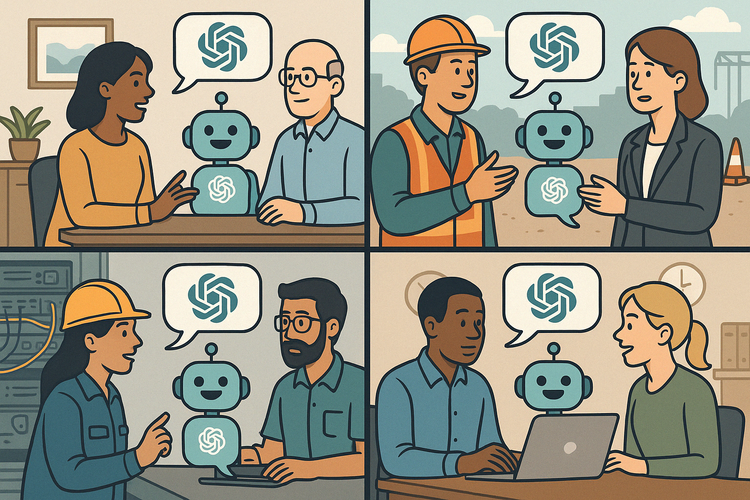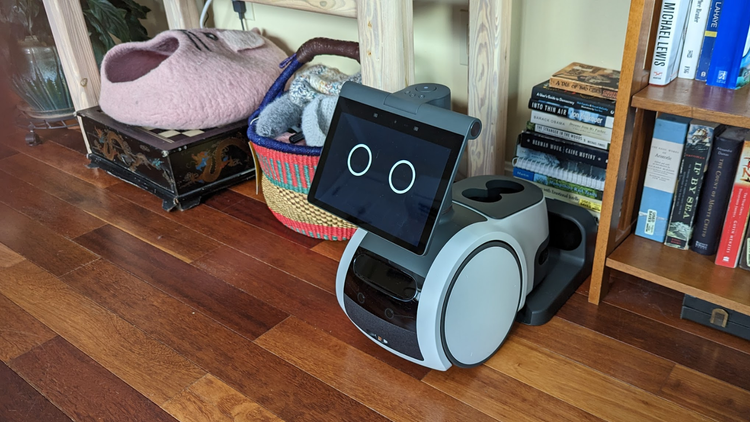AgendaNewsMaker-GPT: My Adventure into AI for Enhanced City Meeting Engagement

Introduction
Lately, I've been diving deep into the potential of AI to foster a more engaged and informed community. Today, I'm excited to share my current experiment: The AgendaNewsMaker-GPT.
The Challenge
Navigating the intricacies of local government can be daunting for our residents. This challenge is particularly apparent in the realm of city meeting agendas. Agendas are traditionally written in government-speak and, let's face it, could be more engaging. Moreover, they're often housed in the agenda centers of our websites, where they may attract less attention than we'd hope. We often hear from residents that they were unaware that a particular policy or project was being discussed. City staff often feel frustrated since they put a significant effort into creating agendas outlining the issues and wonder why residents feel uninformed.
The Opportunity
I saw this as an opportunity for improvement - a chance to harness the power of Generative AI to make our agendas more accessible and engaging and drive community participation. To do this, I turned to OpenAI's ChatGPT-4 and Significant Gravitas's Auto-GPT, two powerful generative AI tools. I installed Auto-GPT using Docker, allowing me to run this AI from my laptop. Note: I am conducting this experiment during my personal time using my own equipment, accounts, and website.
The goal was simple yet ambitious: automate the creation of engaging, plain-language summaries of our city meeting agendas. So I fired up Auto-GPT and asked it to help me build an AI that would read plain-text agenda files, collect the board name, date, time, and location then create an engaging summary of the agenda topics that could be posted to a website to inform residents of upcoming City of Lebanon, NH meetings. I also presented it with the following goals:
-increase awareness of city meetings,
-reduce staff time and effort,
-enhance public communication,
-provide a low-cost tool to support high-performing government objectives.
I set the API call budget to infinite since I didn't want to limit its thinking. I also control my budget from my API dashboard. So far, I've spent $1.89 on API calls.
Because I only have a little experience with programming and setting up the needed environments, I experienced quite a bit of trial and error. I also received helpful assistance from my son, Hyrum Cooper, who helped me better understand Docker.
Eventually, after Auto-GPT got me on the right path, I jumped over to OpenAI ChatGPT-4 to build the code that would perform the tasks, which I will eventually take back to Auto-GPT to continue automating my project.
Also, because I am working on this outside my professional work environment, I am using my personal blog to post the agenda summaries.
How It Works
Here's how it works. First, my Python script checks for unprocessed agenda files in my 'Agendas' directory. I then use a model called BART, or Bidirectional and Auto-Regressive Transformers, a neural network-based model pre-trained on a vast corpus of text data. This model is the key to generating the agenda summaries. I will eventually use ChatGPT-4 for this task, which will perform better.
Once the details are extracted from each agenda file, BART steps in to generate a user-friendly summary of the agenda topics. This process transforms the typically bureaucratic jargon into a digestible rundown of key points for city meetings.
The second part of the script focuses on getting these summaries online. I use JSON Web Tokens (JWT) to secure authentication with my website's API. Once authenticated, the script structures the summary into a format that our website's content management system can process, and then it's posted.
Initial Results
I'm thrilled to report that the initial results have been promising. My alpha model is already generating and publishing summaries. Of course, the alpha model is far from perfect, but I now see the task as possible. Expect to see many random posts on my website over the coming weeks as I continue building this concept and training the AI to give accurate, informative, and ENGAGING agenda summaries. My goal is to expand the capability to post on our social media platforms.
Why I Am Doing This
This project is about making life easier for our residents, enhancing public communication, and providing a cost-effective tool supporting our high-performing government strategic objectives.
I firmly believe that my work with AgendaNewsMaker-GPT is only scratching the surface of what's possible with AI in local government. As I continue to tweak and improve this system, I'm excited about the potential benefits at the intersection of AI and civic engagement. There is much talk about AI taking away people's jobs, but I see AI as a tool to enhance and highlight the work already being done by our dedicated staff.
To Infinity and Beyond
Stay tuned for more personal insights as I continue exploring the power of AI in local governance, including using AI to build Alexa skills and better resident experiences, as well as exploring the metaverse and Web3. Here's to the exciting future of civic engagement in the AI era!
Also, in case you missed it, the Permit Fee Calculator I recently wrote about is now available on the City's Permit Fee Calculator page. It could use some work, but it is a vast improvement over what we previously had available.




Comments ()